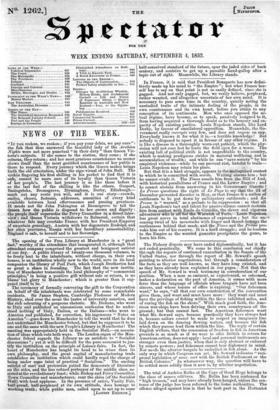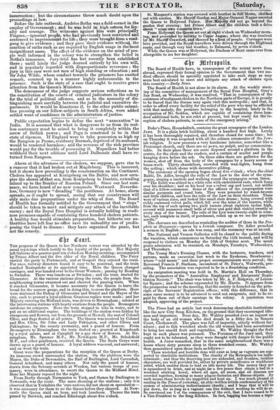The trial of Andries Botha at the Cape of Good
Hope belongs to the class of causes celebres. Mr. Botha has been sentenced for "high treason," and may have already been hanged, unless the sen- tence of the judge has been referred to the home authorities. The offence alleged against him is that he took part in, the Hottentot insurrection ; but the circumstances throw much doubt upon the proceedings at law. Before the late outbreak Andries Botha was afield-cornet in the employ of Government ; and he was held in high esteem for loy- alty and courage. The witnesses against him were principally Fingoes,—ignorant people, who had previously been convicted and sentenced to imprisonment for life ; they were brought from a road- gang to give evidence ; and they gave their evidence without the sanction of oaths such as are required by English usage in the most insignificant oases. The effect of the evidence on the mind of peo- ple well informed in the colony was to strengthen the belief in Botha's innocence. Jury-trial has but recently been established there ; until lately the judge decreed entirely by his own will, and is popularly regarded with disproportionate reverence ; the jury in this case were not men of high standing or education ; and Sir John Wilde, whose conduct towards the prisoners has excited remark, summed up in a manner highly unfavourable to the prisoner. Such is the state of a ease that ought to receive grave attention from the Queen's Ministers.
The demeanour of the judge suggests serious reflections as to the constitution of the courts of criminal judicature in the colony for the trial of political offences, and as to the necessity of dis- tinguishing more carefully between the judiCial and executive de- partments. It would be disastrous if, to the other public calami- ties pressing on our fellow-subjeots in South Africa, were added settled want of confidence in the administration of justice.



























 Previous page
Previous page